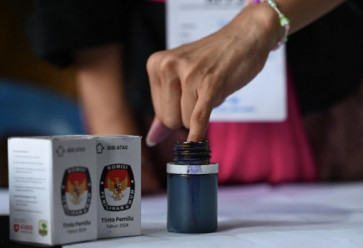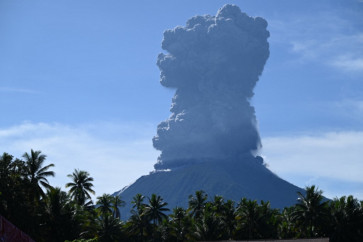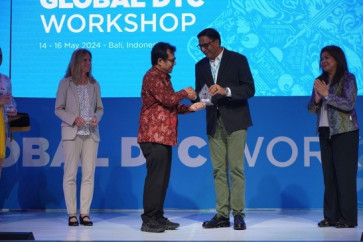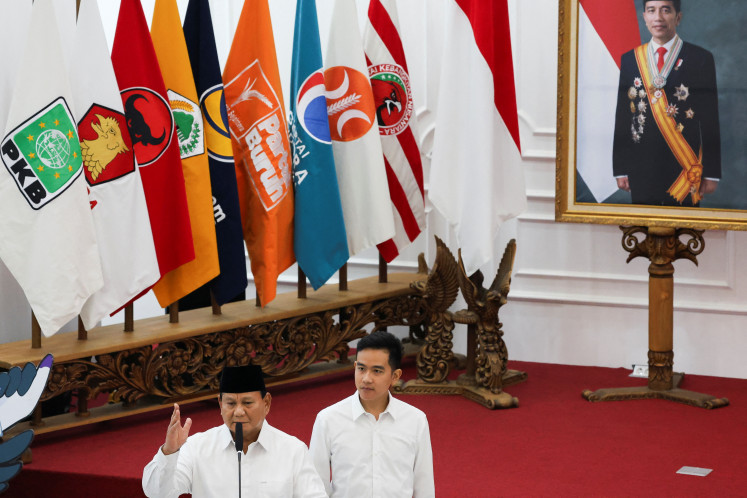Can transactional politics be avoided?
Many have expressed their disappointment in President Joko âJokowiâ Widodoâs Cabinet as it is filled with a large proportion of individuals from political parties of the ruling coalition
Change Size

M
any have expressed their disappointment in President Joko 'Jokowi' Widodo's Cabinet as it is filled with a large proportion of individuals from political parties of the ruling coalition.
On the non-ministerial front, the appointment of M. Prasetyo from the NasDem Party as attorney general and Budi Gunawan as the sole candidate to be chief of the National Police invited criticism, although Jokowi decided to annul the latter. Such appointments have put the government's credibility at stake.
Transactional politics have long been a part of Indonesian Cabinets before and after the reformasi. Transactional politics are inevitable, as embracing the various elites will make it easier for the ruling government to pass its
agenda.
In Indonesia, the problem has gone far beyond securing agendas and is rooted in the tradition of patronage and collusion. However, it is worth questioning whether the Indonesian political system itself has been an amplifier for such a practice. Is the fusion between presidential democracy and the multi-party system at fault for Indonesia's elitist democracy?
I do not aim to frame debates between presidential and parliamentary or between two-party and multi-party systems per se, but to portray the political climate produced by the combination of presidentialism and a multi-party system in Indonesia.
Indonesia adopted a presidential democracy, with some elements of parliamentarianism. In a presidential democracy the legislative elections do not determine the composition of executive power, emphasizing the institutional separation of the two.
In another model of presidential democracy like the United States, a two-party system is implemented. Yet Indonesia embraces a multi-party system, with the basic idea that involving more political parties will result in a more representative legislature.
The dilemma is that the President's party alone almost never constitutes a majority, which often results in transactional politics.
In the 2009 legislative election, Yudhoyono's Democratic Party won 20.85 percent of the votes while in 2014, Jokowi's Indonesian Democratic Party of Struggle (PDI-P) won 18.95 percent.
Such parties will face a juncture in determining its coalitional make-up: a small coalition means it would be difficult to gain support in the legislature, whereas a bigger coalition means a wider distribution of power.
Once they win the election, ministerial and non-ministerial posts would have to be distributed among the coalition members in order to retain supporting parties.
While a parliamentary system ensures that parties in the ruling coalition are inclined to support the reigning government, in a presidential system the coalition is much more fluid.
The President's party will likely deploy various efforts in ensuring the supporting parties do not swing over to the other side by granting strategic positions to party members.
A multi-party presidential system can only triumph if the parties are credible, bottom-up institutions that represent the aspirations of the voters.
Unfortunately, in Indonesia, this is not always the case.
Ideally, each political party should have a clear stance distinct from its competitors, to materialize the basic idea of being accommodative and representative.
Yet here, most of the parties adopt a 'catch-all' model; none of them really devote themselves to represent the interests of a specific group of people.
While the Islamic parties have a more specific audience, they do not have a significantly distinct stance from those of the secular parties.
When all these parties enter the legislature, their stances are largely malleable and interest-driven.
Take the PDI-P's stance on fuel subsidies. For the past 10 years, the PDI-P had always been at the forefront of opposing proposals to cut fuel subsidies, even when global oil prices were booming.
The party even issued a guide book that outlined various alternatives to make increasing oil prices untenable.
However, when Jokowi entered office, one of his earliest reforms was to curtail fuel subsidies.
This decision was announced in November 2014, when global oil prices were falling. The Prosperous Justice Party (PKS) ' part of the ruling coalition during Yudhoyono's era ' also shared similar ambiguities when it came to the fuel subsidy issue, casting confusion on whether the party would stay in the coalition.
Such interest-driven stances demonstrate the difficulty of the President's party in maintaining a stable coalition.
Indonesia's multi-party presidential system faces difficulties operating efficiently because of the malleable nature of the parties, mixed with clientelism.
Controversial appointments in today's administration cannot be seen as a move solely driven by the need to consolidate power to secure a governmental agenda ' it might have extended to individual or group interests.
It is questionable whether the controversial appointment of Attorney General Prasetyo was required to retain the Nasdem Party in the coalition, noting that three Nasdem members were already filling ministerial posts.
It is also questionable how the push to appoint Budi Gunawan could increase the ruling coalition's bargaining power in the legislature.
Although patronage and collusion are still the root causes, improving the system can help to reduce transactional politics.
Increasing the legislative threshold may not be the solution, as a smaller number of parties do not necessarily translate into less transactional politics.
Perhaps we need a mechanism to make the coalition more binding; thus, the leveraging of transactional politics to compensate for the malleability of the political parties can be curtailed.
_______________
A multi-party presidential system can only triumph if the parties are credible, bottom-up institutions that represent the aspirations of the voters.
________________
The writer is a student at the S. Rajaratnam School of International Studies, Nanyang Technological University, Singapore.









